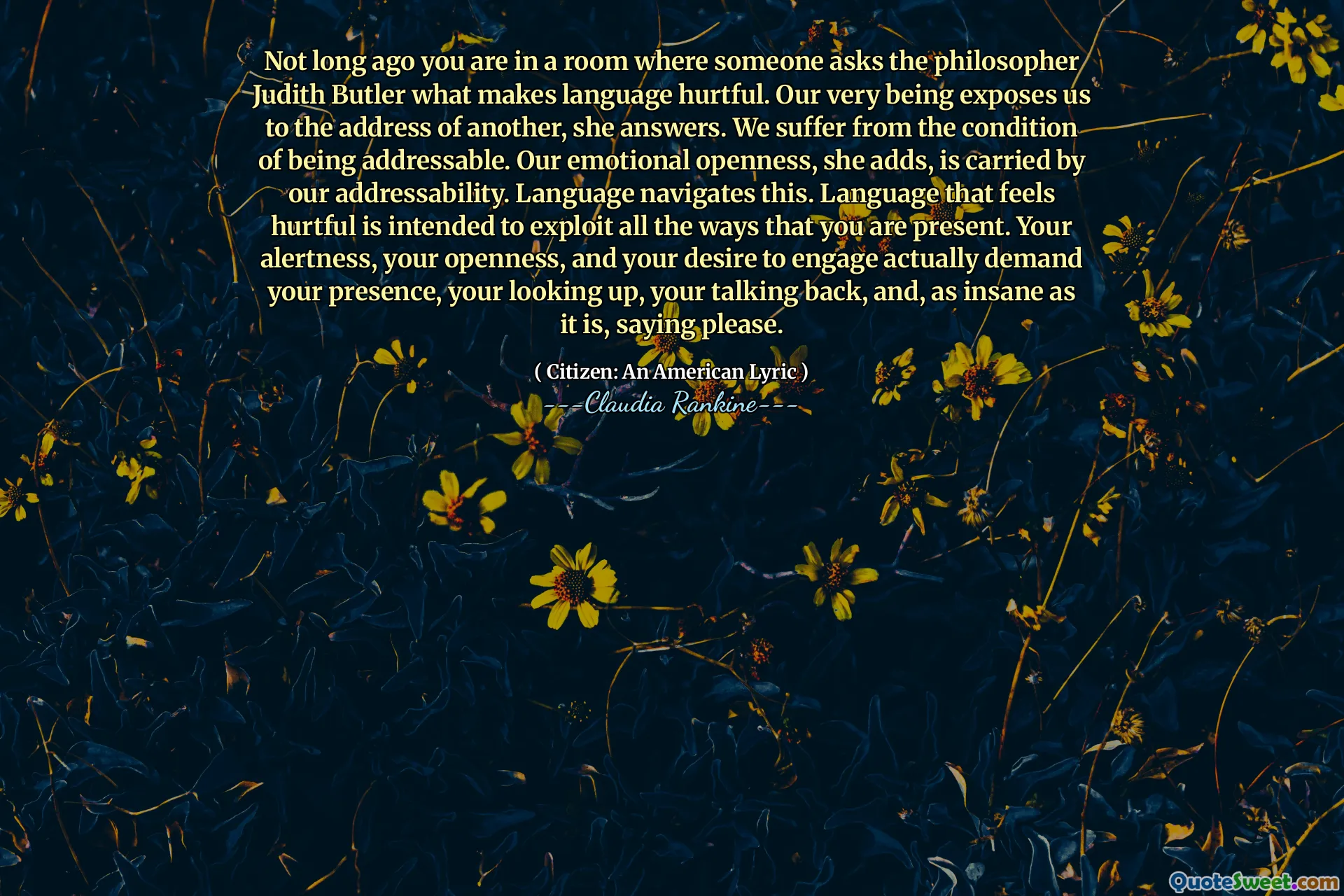
Not long ago you are in a room where someone asks the philosopher Judith Butler what makes language hurtful. Our very being exposes us to the address of another, she answers. We suffer from the condition of being addressable. Our emotional openness, she adds, is carried by our addressability. Language navigates this. Language that feels hurtful is intended to exploit all the ways that you are present. Your alertness, your openness, and your desire to engage actually demand your presence, your looking up, your talking back, and, as insane as it is, saying please.
Judith Butler, a prominent philosopher, reflects on the nature of language and its potential to hurt during a discussion. She suggests that our very existence makes us vulnerable to the words and actions of others, labeling this vulnerability as our "addressability." This concept implies that our emotional responsiveness is linked to how we can be addressed by others, highlighting the intricate relationship between language and our interpersonal experiences.
Butler explains that hurtful language often manipulates our innate qualities, such as our sensitivity and willingness to connect. This type of language exploits our need for interaction and can evoke significant emotional responses. In her view, the act of communication is fraught with the risk of pain, emphasizing that our engagement with others requires us to be vulnerable, responsive, and sometimes even submissive in our interactions, as we continue to seek understanding and connection.






